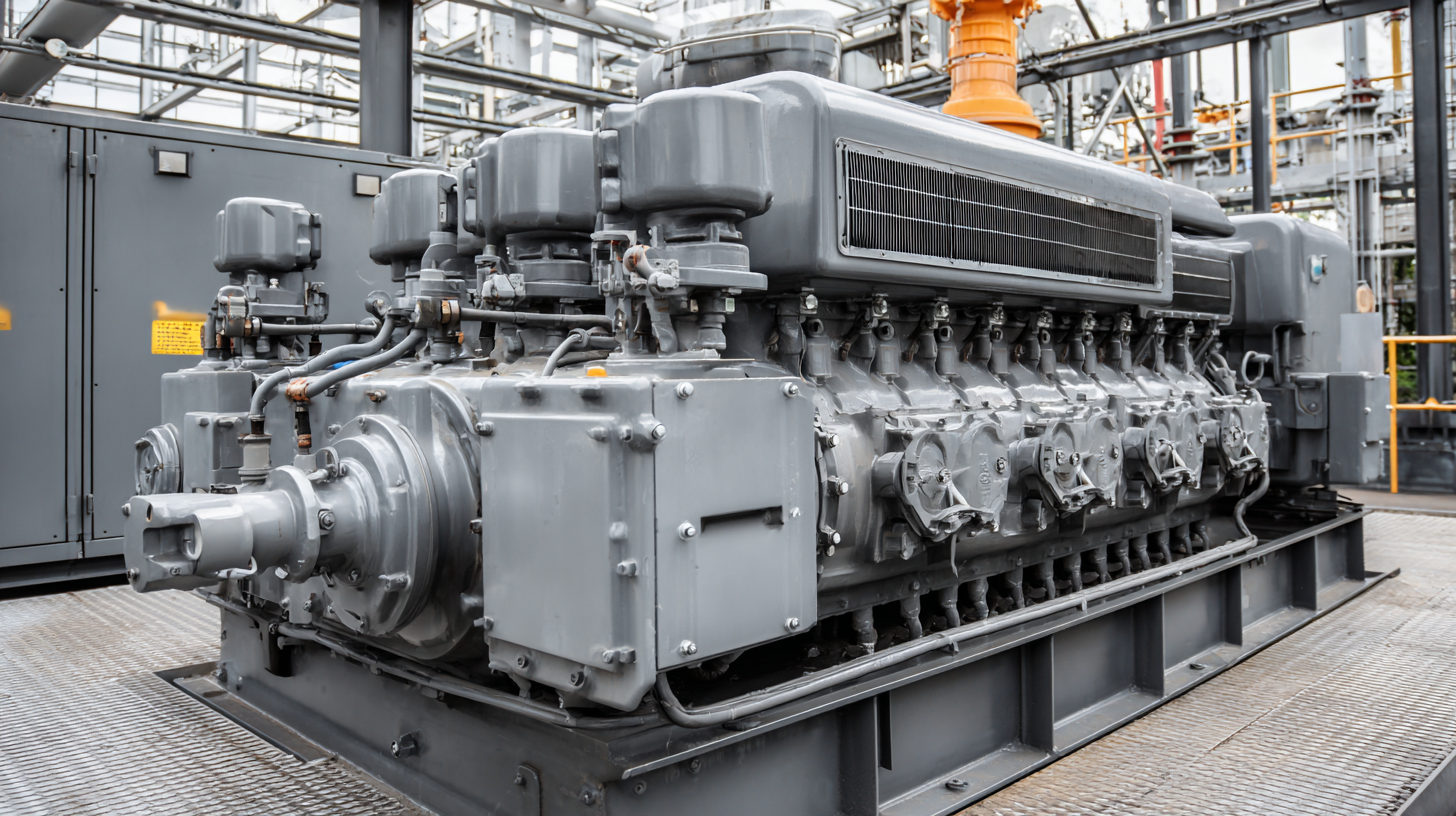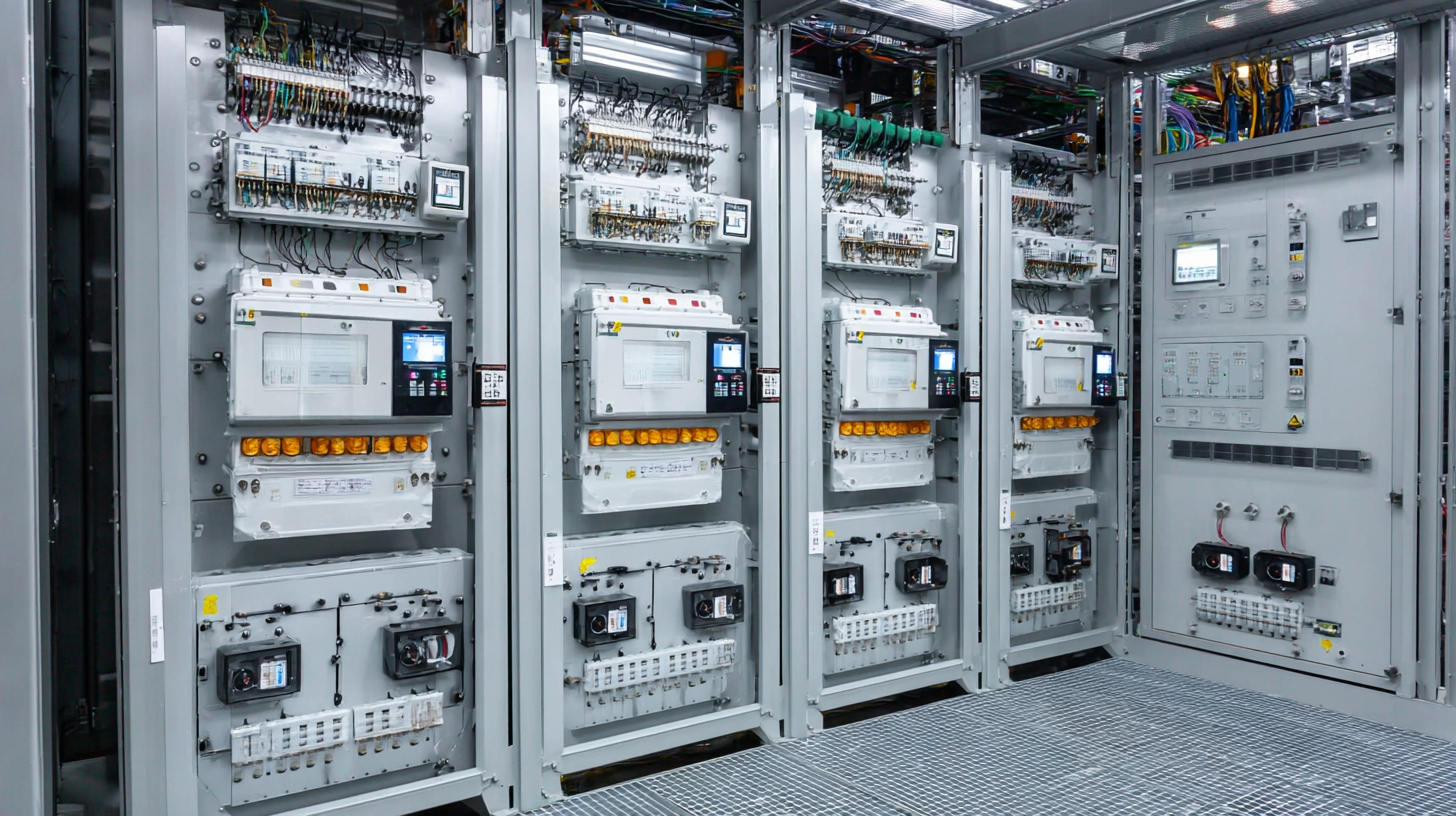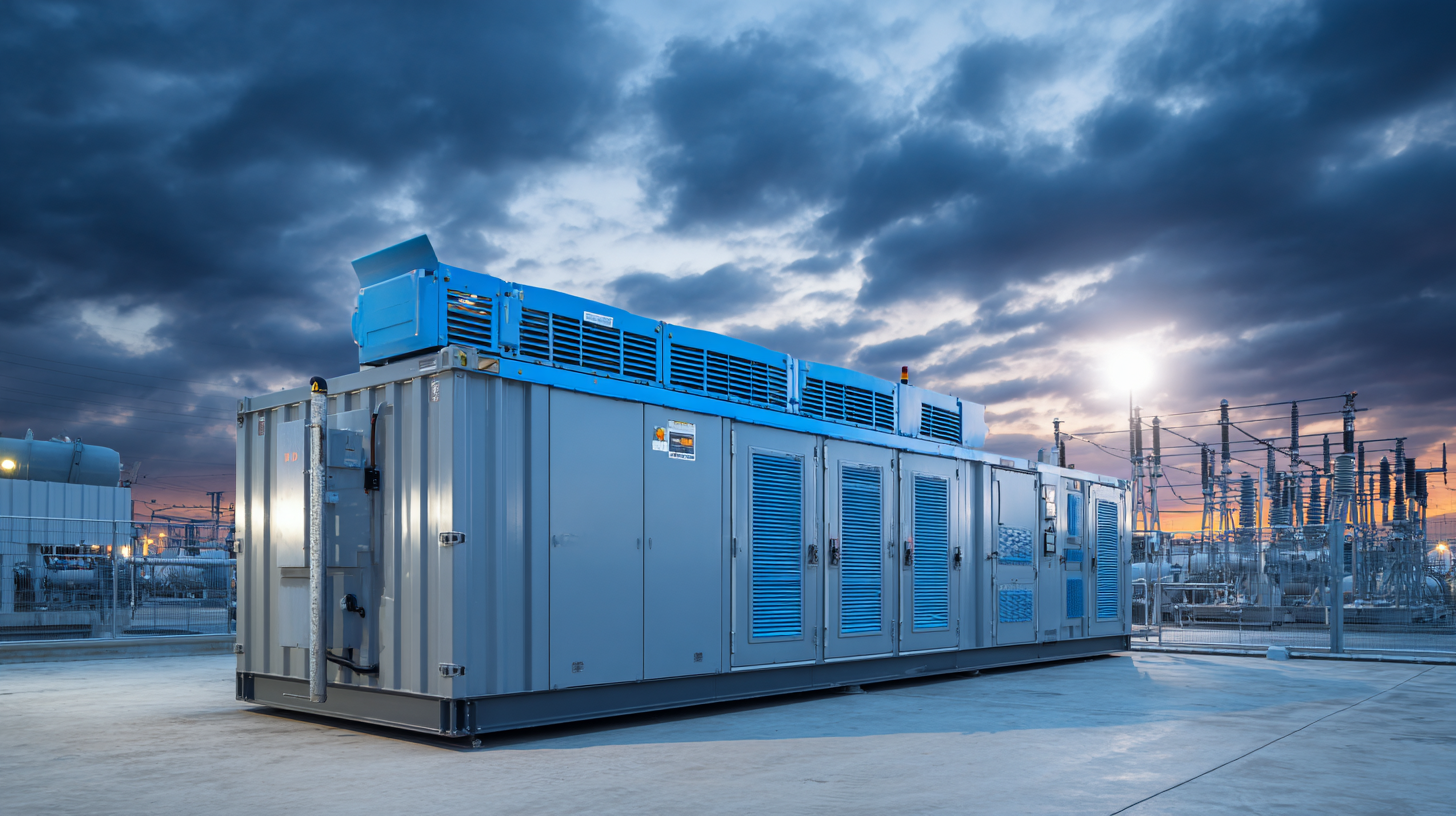
-
Home
-
Products
-
Service
-
About Us
-
Solution
-
Videos
-
News
-
Contact Us
Leave Your Message

In the competitive landscape of energy solutions, the "Power System Generator" stands out as a crucial component for both residential and industrial applications. According to a report by MarketsandMarkets, the global generator market is projected to reach USD 28.3 billion by 2026, growing at a CAGR of 4.6% from 2021. This growth is driven by the increasing demand for reliable power sources and the integration of renewable energy systems. As industries face challenges such as power outages and energy efficiency, investing in a high-quality power system generator has never been more vital. Not only do these advanced systems offer superior performance and reliability, but they also comply with stringent industry import and export certifications, ensuring that users access cutting-edge technology that outshines competitors. In this blog, we will delve into seven compelling reasons why the best power system generators are essential for businesses and how they can enhance operational efficiency in today's energy-intensive environment.

When evaluating the best power system generators, several key features distinguish the top performers from their competitors. Firstly, fuel efficiency is paramount. Leading generators are designed to maximize output while minimizing fuel consumption, which not only reduces operational costs but also lessens environmental impact. Models that incorporate advanced technology, such as variable speed engines, can adjust their power output to match demand, effectively optimizing fuel use.
Another critical feature to consider is reliability. The best power system generators come equipped with robust components that ensure consistent performance, even in adverse conditions. Durability is enhanced through superior materials and engineering, providing peace of mind to users who depend on their generators for emergency power or continuous operation.
Additionally, top generators often feature advanced monitoring systems that provide real-time performance data, allowing for proactive maintenance and minimizing unexpected downtime. These essential features collectively elevate the performance of power system generators, ensuring they stand out in a competitive market.
In today’s competitive market, evaluating supplier reputation and reliability is crucial for businesses looking to choose the best power system generator. A supplier’s track record not only reflects the quality of their products but also indicates their ability to meet industry standards and customer expectations. Companies should prioritize suppliers with strong certifications, positive customer testimonials, and a transparent history of performance.

Tip: When assessing suppliers, consider conducting a thorough background check and requesting case studies that highlight past successes. This can offer invaluable insights into their operational capabilities.
Additionally, fostering strong supplier relationships can lead to enhanced reliability. Companies can benefit from open lines of communication and regular evaluations of their suppliers’ performance. Building trust enables businesses to collaborate effectively and create win-win solutions that advance both parties.
Tip: Implement regular performance reviews to discuss goals, challenges, and innovations that can improve the partnership. Effective collaboration can significantly enhance supply chain resilience, especially in times of global crisis.
In the rapidly evolving landscape of power generation, technological advancements have become the backbone of efficiency and reliability. As per a recent report by the International Energy Agency (IEA), the global demand for electricity is set to increase by 30% by 2030, highlighting the need for more robust power generation systems. Leading power system generators have emerged with innovative technologies that enhance output while minimizing environmental impact. These advancements not only cater to increasing energy demands but also improve fuel efficiency, allowing for significant cost savings.
One of the most compelling advances is the integration of smart grid technology, which allows for real-time monitoring and optimization of power distribution. According to a study by MarketsandMarkets, the smart grid market is expected to grow from $29.5 billion in 2020 to $61.3 billion by 2026, indicating a shift towards automated and efficient power systems. Additionally, generator systems are now being designed with cleaner energy sources like solar and wind integrated directly into generation capabilities. This trend aligns with the World Economic Forum's projection that renewable energy could account for 50% of global electricity generation by 2030, showcasing how leading generators are capitalizing on this transition and setting themselves apart from the competition.
| Feature | Description | Benefits |
|---|---|---|
| High Efficiency | Using advanced fuel technology to reduce energy waste. | Lower operational costs and reduced environmental impact. |
| Noise Reduction | Incorporates sound-dampening technology. | Quieter operation, ideal for residential areas. |
| Smart Controls | Integrates IoT technology for remote monitoring. | Enhanced reliability and easier maintenance. |
| Compact Design | Space-saving engineering without sacrificing power. | Ideal for limited spaces, such as urban environments. |
| Enhanced Durability | Constructed with high-quality materials and design. | Longer lifespan and reduced need for replacements. |
| Versatile Fuel Options | Compatible with multiple fuel sources including solar and gas. | Flexibility for various situations and environmental conditions. |
| User-Friendly Interface | Simple control panel for ease of use. | Improved user experience, accessible for all skill levels. |
When choosing a power system generator, assessing the warranty and support services offered by suppliers is crucial. A robust warranty can be a strong indicator of a manufacturer's confidence in their product. It serves as a safety net for the buyer, ensuring that if repairs or replacements are necessary, they won't break the bank. The best power system generators typically come with extensive warranties that cover not just the generator itself but also parts and service for an extended period. This long-term commitment from suppliers protects your investment and provides peace of mind.
In addition to warranty coverage, the quality of support services should also influence your decision. Efficient customer support means quick responses to inquiries, technical assistance when issues arise, and readily available spare parts. The top competitors in the power system generator market often excel in offering comprehensive support, from installation guidance to regular maintenance tips. By opting for a supplier that prioritizes customer care, users can ensure that they have the necessary resources to keep their generators running smoothly, enhancing the overall value of their purchase.
When it comes to power system generators, pricing and value for money are critical factors that help consumers make informed decisions. The leading models on the market might come with a higher upfront cost, but they often outshine competitors through their long-term reliability and lower maintenance expenses. For instance, a generator that utilizes advanced technology may save owners from frequent repairs and fuel consumption issues, ultimately translating into significant cost savings over its lifespan.

Furthermore, evaluating warranty options and customer support can add another layer to the value proposition. Top-tier brands typically offer extended warranties and responsive customer service, assuring buyers that they are investing in a product that will serve them well. In contrast, lower-priced alternatives may lack these essential support systems, making them a riskier investment despite their appealing price tags. By focusing on the total ownership cost and weighing it against the initial price, consumers can clearly see why a higher investment in a quality power system generator often proves worthwhile.